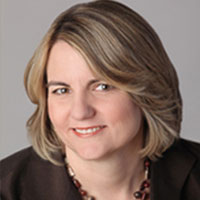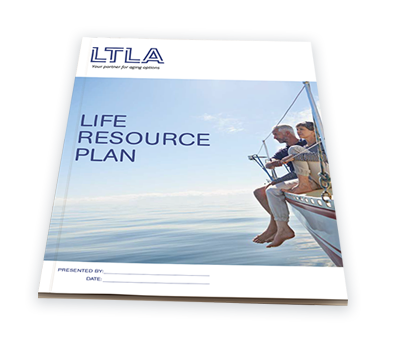
Life Planning That Can Lighten the Load of Aging Challenges
Shana Siegel will be the first to tell you how fortuitous it is that life intertwines with work—especially because events in her own life led her to direct her elder law practice into a focus on life care planning.
The parallels are quite coincidental, she says. A crisis occurred surrounding placement of her son who has special needs. “There I was, finding a placement for him, dealing with huge legal and financial issues and trying to run a law firm at the same time.”
Right then, she thought of her clients who must deal with similar issues while grappling with a significant personal and emotional situation. Questions arise. What’s in store for my loved one care wise? How can I legally protect them? What are the family dynamics going to be?
The new interdisciplinary practice model of life care planning combines traditional estate planning, elder law and asset protection, and in Shana’s case the representation of Veterans, with care coordination and planning. Helping clients in Morris, Bergen, Essex, Passaic and surrounding counties, Shana, a certified elder law attorney (CELA), leads a legal team who have what it takes to offer these services: incisive analysis, legal expertise, and the compassion that enables them to guide families through stressful times and make decisions with confidence.
Sadly, there’s still a tendency for clients to come to Shana and her colleagues when they’re in crisis mode. “I very much wish this wasn’t the case,” says Shana, emphasizing that one of the ideas behind life care planning is getting to people earlier when they first receive a diagnosis.
“Pre-crisis, we can do more in terms of asset preservation, and people can avoid problems and complexities if they do plan ahead,” she says. “This is the ‘Oh my goodness phase.’” The wife has ALS or the husband has dementia, and they are just starting to deal with what it all means. When they reach out to us before they start being influenced by misinformation, preconceptions and panic, we can guide them along and make their journey an easier one. “That’s where we play a part in immediately developing a plan and building a vision to address short and long term goals.”
Shana says the most difficult issues she faces are clients with dementia that impacts behavior more than it does lucidity. These clients can be aggressive, making it difficult for the family and the certified care advisor to make a facility placement.
Shana’s firm works with couples and typically a patient’s family. The firm also frequently works with single individuals and their intervention combined with the work of a geriatric care manager can make a world of difference in ensuring a patient who is alone receives high quality care.
As further evidence of her commitment to her clients, in 2015, Shana became a member of the prestigious National Academy of Elder Law Attorneys (NAELA) Council of Advanced Practitioners, an invitation-only group of elder and special needs planning practitioners. CAP, says Shana, is at the forefront of industry planning and assumes an advocacy role in helping elder law practitioners better serve the burgeoning aging population.
“This membership has allowed me to meet and work with so many amazing elder law professionals,” she says. “I can just pick up a phone and talk with colleagues from all over the country.”
According to Shana, there’s much interesting history surrounding the progression of elder law. Initially, many attorneys came from the public interest world and boasted a public benefits and legal services mindset and expertise. Therefore, many elder law attorneys are focused almost exclusively on Medicaid; while important, that limited concentration does a disservice to other issues within the elder care arena.
Increasingly, other practitioners are coming to understand the broader implications of elder law, and the profession can give thanks to the CELA certification for pushing an expanded knowledge base and practice scope. We are seeing smart, experienced attorneys talking about a variety of issues beyond Medicaid, Shana says. It’s the direction the industry is taking.
“There’s much for our profession to think about,” she says. “Things like where people live beyond a nursing home, and identifying better ways to deliver care.” Plus, there are concerns even beyond health care. For example, the fact that people are working longer can bring about employee discrimination issues.
“Instead of a narrow specialization, those of us in the field will adopt a creative outlook as we determine better ways to serve our clients.”

Elder Care Attorneys the Best Option to Address Key Issues in Senior Lives
Many well meaning and general practitioners lack the detailed and in depth knowledge to address the issues that impact seniors’ lives. Shana Siegel discusses how tax, trust, real estate and Veteran’s issues, if improperly handled, can adversely affect senior lives and explains how advisement from an elder law attorney who is well-versed in the disciplines that affect many elder law matters can help.
With an Elder Law Attorney in Your Corner You Can Eliminate the Stress, Mistakes of DIY Planning
If you’re overwhelmed about life planning, Elder Law Attorney Shana Siegel can provide you with the education, resources and comprehensive plan to help preserve your independence, protect your assets and obtain the benefits you deserve. Shana can save you from the innocent, yet typically costly, mistakes of planning on your own and handle the crises that can occur to give you confidence and peace of mind now or as you anticipate the future.
FAQs
What percentage of your practice is elder law?
Approximately 85% of my practice is focused on this very unique and meaningful area of the law. Since elder law is a sub-set of estate planning, I also represent clients in the drafting of wills, trusts, powers of attorney, and health care directives. I have to consider the future for every client whether they are the elderly or a 65 year old. Once family members see how we handle their loved ones, they often retain us for their own planning.
Will you return phone calls/emails? Will I be able to speak to the attorney whenever I need an answer?
My colleagues and I pride ourselves in returning phone calls and emails in an expeditious manner. We recognize that lawyers have a reputation for ignoring phone calls and emails. We are not a typical law firm and have a tested response system. We also recognize that many questions can be intelligently answered by staff members. In fact, many requests to speak to one of our attorneys are better handled by a staff member since he or she is actively involved in that aspect of your matter. In the event your question requires an attorney’s attention, however, a meeting will always be scheduled for a mutually convenient time.
How are you different from my family attorney who does wills, real estate, and litigation?
Elder law attorneys who focus their practices in this area are well versed in the legal disciplines that affect many elder law matters. Based on education and experience, we know that even the simplest matter may involve knowledge of tax, trust, real estate law, Medicaid and the Veterans Administration. Many well-meaning general practitioners miss some important aspects of the plan and inadvertently create new problems.
Will you travel to meet my mom/dad who is unable to travel?
Yes. I will accommodate your loved one either in one of our three offices or, if necessary, in a residence or hospital.
What distinguishes you from other elder law attorneys?
I am very careful to hire attorneys and staff who understand that part of the practice of law is the client experience. My colleagues and I distinguish ourselves by taking accountability in everything we do. We combine this with constant education and training in elder law to create a well- rounded, courteous, professional, and happy team. From secretarial duties to legal or financial plans, we always do the best we can with that given task. Many of us have also gone though this journey with loved ones so we understand our clients challenges when dealing with a long term care crisis. Furthermore, we are firmly entrenched in the elder care community. We consistently interact with local assisted living facilities, nursing homes, geriatric care managers, financial advisors, accountants, and other attorneys. If we don’t have the answer, we will find someone who does.
Is elder law focused exclusively on Medicaid planning?
Elder law is so much more than Medicaid planning. We also help seniors establish estate plans to help them distribute assets upon death and potentially save their heirs estate tax. We also help seniors qualify for Veterans Administration benefits in order to continue to private pay longer, rather than having to rely on Medicaid to pay for their care. Another service is to counsel clients on appropriately spending their money in the face of a long term care need.
One of my children needs financial assistance now. How can I help her and ensure my other children will receive an equitable inheritance upon my death?
Depending on how you feel about “equitable inheritance”, one solution might be to execute a promissory note that is repaid by the child’s share upon your death. There are other options as well, but all must be carefully evaluated in order to avoid creating unnecessary problems down the road.
I have heard I have to deplete my assets to qualify for Medicaid. Should I now deed my lifelong house over to my only son?
If you wish to pre-plan for a potential long term care need in the future, we recommend transferring assets out of your name. However, it is rare that we would recommend transferring a large asset (especially a home) to another person. The potential problems include: the son’s possible creditor issues, divorce, predeceasing you, tax consequences.
How can I adequately provide for the needs of my disabled child upon my death?
The simple answer is a testamentary Supplemental (Special) Needs Trust (“SNT”). This is a trust contained in your will which springs into being upon your death. It allows a trustee to pay for certain items over and above what government benefits will cover. This prevents an inheritance from jeopardizing benefits. Another solution is a standalone SNT. This is usually used for clients with greater wealth or those who have received a financial settlement from an accident. It is funded during life.
My father is reluctant to relinquish the financial control of his assets, yet I am not sure he is doing all he can to maximize his investments and protect his assets to ensure he will have enough money to last him throughout his life. How can I address this issue?
We find that the best way to address this issue is to have him speak to one of our attorneys. An objective third party is often better received than a close family member who may be seen as the irresponsible child that they once were.
A question relating to veterans
Our veterans deserve to be treated with respect and to be rewarded for their time in service of our country. The VA Aid & Attendance program awards veterans and their spouses up to $2100/month to help pay for their long term care needs. We counsel clients on how to qualify for this valuable program which can make the difference between receiving high quality professional care and being cared for by an unskilled family member or friend.
Life Resource Plan
What is the best course of action for you and your loved one? Find out by talking to a consultant and creating a Life Resource Plan.



